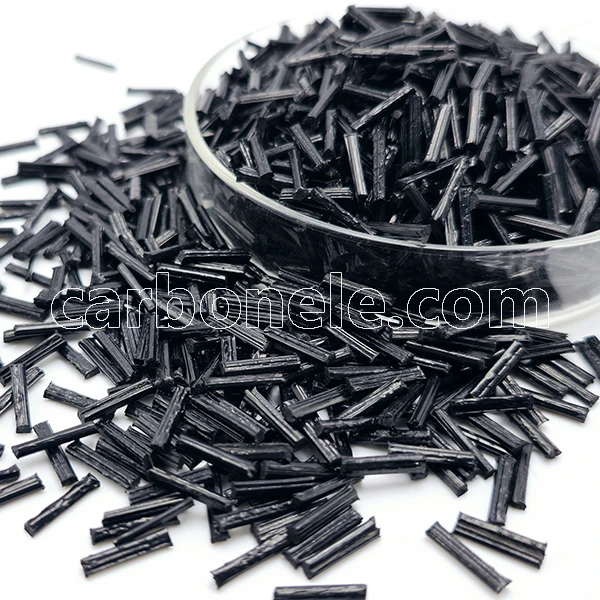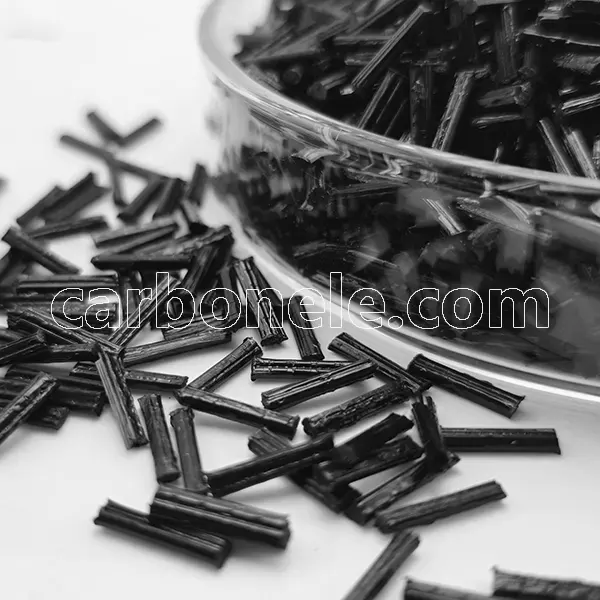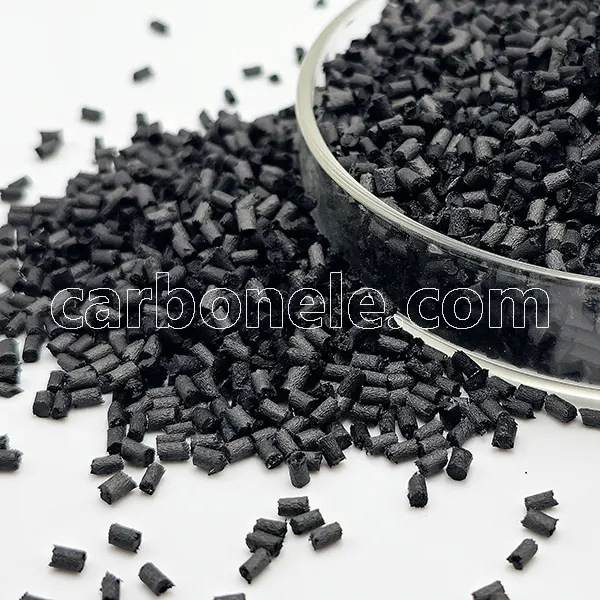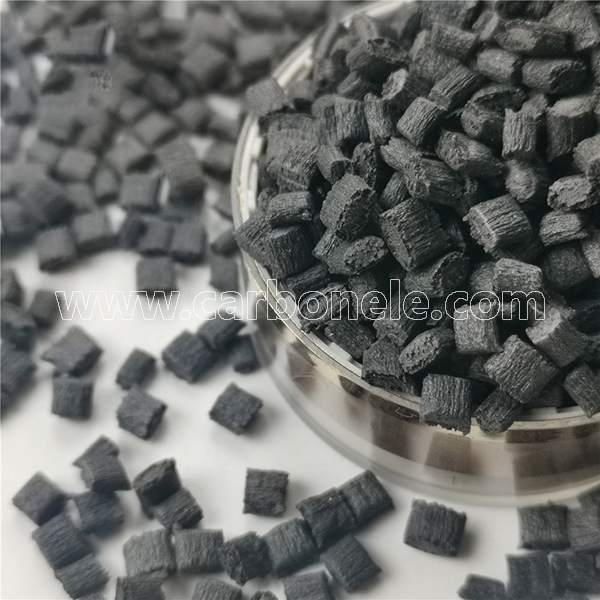
PPS CF Reinforced Composites Can Replace PEEK And Metal - Carbon Fiber Compounds Manufacturer | Supplier
As industrial technology develops constantly, material performance criteria are rising as well. PPS CF (polyphenylene sulfide carbon fiber reinforced composite material) has gained increasing interest among numerous technical materials because of its great performance. Showing performance equivalent to PEEK (polyetheretherketone), this material combines the great heat resistance and chemical stability of PPS with the strength and stiffness of carbon fiber. This material shows standard metal materials performance. PPS CF offers not only great cost-effectiveness and environmental benefits but also satisfies the industrial demands of high performance criteria.
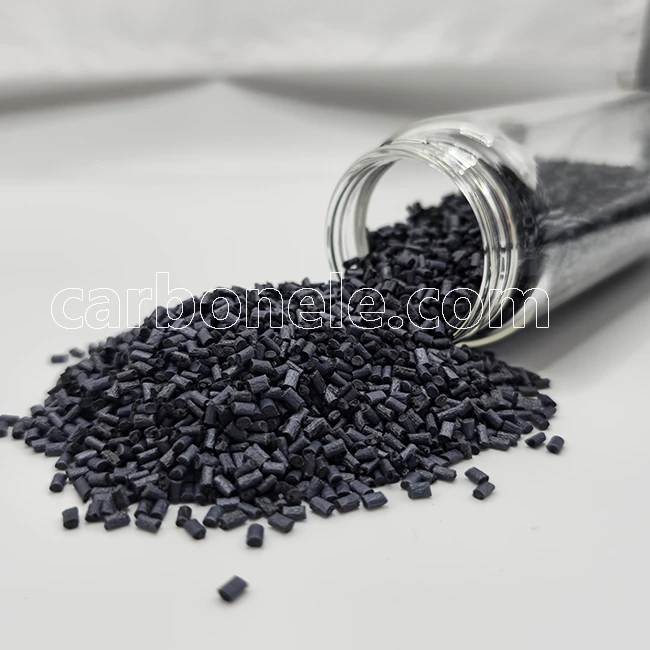
Heat-resistant PPS CF10 for electric vehicle batteries
Materials’ characteristics and performance benefits
Especially in replacement of PEEK and metal, PPS CF reinforced composite materials are regarded as the perfect substitute material in many industrial uses. Excellent mechanical strength, heat resistance, and chemical resistance of this material helps it to maintain steady performance under demanding working conditions. PPS is a thermoplastic with good heat resistance and chemical corrosion resistance; adding carbon fiber reinforcement on its foundation increases its dimensional stability, stiffness, and strength even more. Particularly in sectors where weight reduction is needed, including aircraft, vehicles, and electronic equipment, the qualities of this material make it a good replacement for metal.
PPS CF reinforced composites are less expensive than PEEK, which helps industrial manufacturing to be more cost-efficient. PPS CF also exhibits great fatigue resistance at the same time and may be utilized for a long period under high-load operating circumstances without clearly deformation or damage. In uses requiring low friction and wear resistance, its low coefficient of friction and great wear resistance make it especially appropriate. Thus, in many demanding industrial applications PPS CF reinforced composites are probably going to become a good substitute for PEEK and metal materials.
Application Fields and Potential Advantages
PPS CF reinforced composites are widely used in sectors with high material performance criteria mostly under concentration. One of the main markets for PPS CF is the aircraft sector; the need to light the fuselage has led to extensive adoption of this material. PPS CF is lighter than conventional metal materials, yet it is not less in retaining strength and stiffness, which gives aircraft builders more design flexibility. Particularly in engine components and structural sections, PPS CF reinforced composites are progressively replacing certain metal parts in the automotive sector, therefore helping to lower vehicle weight and increase fuel economy and carbon emissions.
Particularly in tiny, lightweight devices that operate in high-temperature situations, PPS CF’s heat resistance and dimensional stability make it the perfect material option for electronic equipment manufacture. Furthermore extensively utilized in electrical and electronic components is the material because of its electrical insulating qualities. Particularly in budget-conscious applications, PPS CF may also efficiently substitute conventional PEEK materials. In many circumstances, its great performance in heat resistance, mechanical strength, and chemical stability makes it a formidable rival to PEEK; additionally, it brings reduced prices and more manufacturing efficiency.
environmental benefits and processing performance
One of PPS CF’s main benefits in substituting PEEK and metal materials is also its processing performance reinforced composites provide. Good fluidity and processability of the material allow it to produce intricate geometries during injection molding, which is necessary for creating complicated components in contemporary production. Furthermore, PPS CF guarantees the final product has exact dimensions and great surface quality throughout processing by means of its minimal shrinkage and strong dimensional stability. PPS CF uses instead of metal processing does not call for further machining operations, therefore drastically lowering manufacturing costs and time involved.
One cannot overlook the benefits of PPS CF strengthened composites in environmental preservation. First of all, PPS CF materials’ low energy consumption during manufacture makes them more energy-efficient than smelting and processing of metal products. Second, PPS CF is somewhat less ecologically favorable during its life cycle as it has a lengthy service life and high recycling rate. Furthermore helping to lower product energy usage are PPS CF’s light weight qualities. In automotive uses, for instance, PPS CF’s replacement of metal components may efficiently lower the vehicle’s total weight, therefore lowering fuel consumption and emissions. These benefits help PPS CF to hold a progressively significant role in the choice of materials going forward.
Future paths of progress and challenges
PPS CF reinforced composites have demonstrated great performance in various facets, however their use in place of PEEK and metal components still presents some difficulties. The material’s long-term durability first presents a concern. PPS CF has strong anti-fatigue performance, but its long-term stability in demanding conditions still has to be confirmed further. Second, PPS CF’s processing technology still has potential for development; particularly in certain applications requiring great precision, its molding accuracy and surface quality need to be raised. Furthermore, PPS CF materials have a quite cheap cost, but their initial investment in raw materials and manufacturing tools is still significant, which restricts their appeal among small and medium-sized businesses in some degree.
PPS CF’s future development strategy could concentrate on enhancing its material qualities and manufacturing technologies, thereby strengthening composite composites. For instance, by means of enhanced distribution and content of carbon fibers, the whole performance of the material can be raised; or by means of better molding technique, the manufacturing cost can be lowered and the product quality can be raised. Furthermore, as environmental protection criteria develop, PPS CF’s sustainability—including material recycling and carbon emissions reduction in the manufacturing process—will also become one of the major areas of study. Although PPS CF reinforced composite materials offer great general use possibilities in replacing PEEK and metals, their future development still needs to make more technical innovation and cost control breakthroughs.
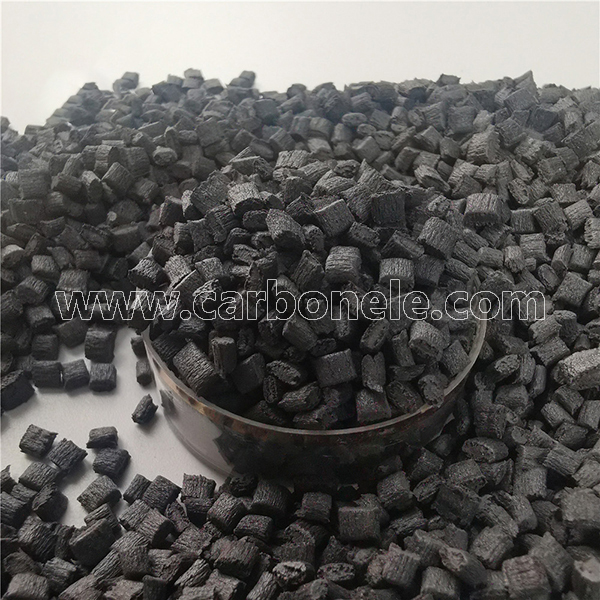
Carbon fiber reinforced thermoplastic composites
Summarize
When substituting PEEK and metals, PPS CF strengthened composites exhibit notable benefits. In demanding uses like aerospace, automotive, and electronic equipment, its great heat resistance, mechanical strength, and chemical corrosion resistance define it. PPS CF is a reasonably affordable option at the same time because of its environmental benefits and processing capability. PPS CF performs quite well in many respects, however there are still some difficulties to solve including long-term durability and manufacturing cost problems. As technology develops and market demand shifts, PPS CF is projected to be more significant in many more sectors going forward. Promoting the extensive use of PPS CF will depend mostly on thorough study and enhancement of its performance and processing capability for industrial producers.
Feature Product
-
PA12 LCF30 for Drone Fuselages & Wings
What do you know about PA12 LCF30? PA12 ...
-
Competitive Price PA6 LCF30 Composites
What’s it? PA6 LCF30, which stands...
-
ABS CF10 Compound ABS 10%CF Thermoplastic Compo...
What’s ABS CF10? ABS CF10 refers t...








